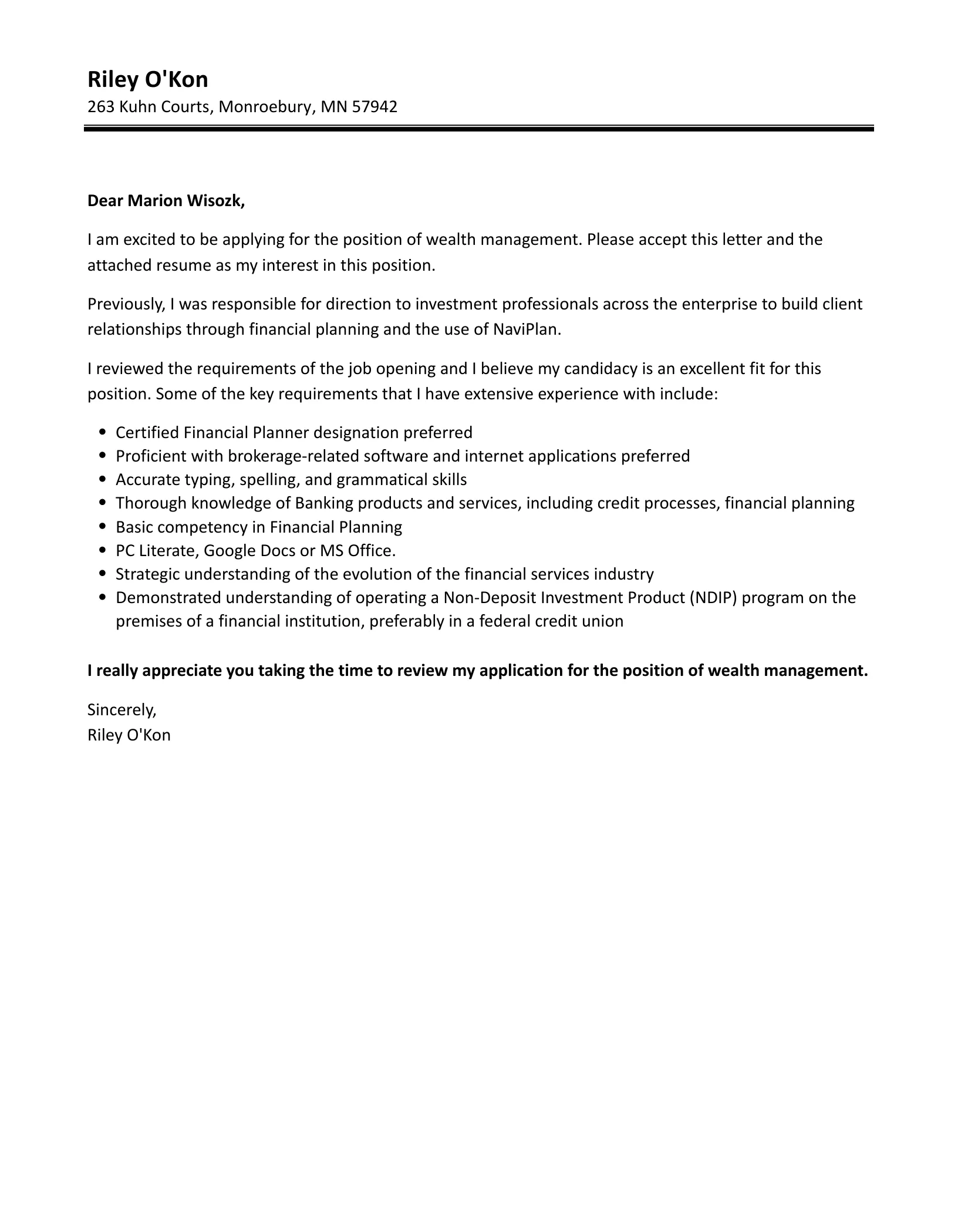Why a Wealth Management Intern Cover Letter is Crucial
In the competitive world of finance, securing a wealth management internship is a significant step towards a successful career. A well-crafted cover letter serves as your initial introduction, allowing you to make a positive first impression and differentiate yourself from other applicants. It provides an opportunity to showcase your personality, skills, and enthusiasm for the role, which a resume alone may not fully convey. This guide will provide you with the necessary steps to create a compelling cover letter that grabs the attention of potential employers and increases your chances of landing an interview. Your cover letter is not just a formality; it is a strategic tool to highlight your suitability for the wealth management internship, and an outstanding first impression could lead to your long-term career goal in finance.
Understanding the Purpose of the Cover Letter
The primary purpose of a cover letter is to supplement your resume by providing a more detailed explanation of your qualifications and aspirations. It allows you to elaborate on specific experiences, skills, and achievements that align with the requirements of the internship. Unlike your resume, which presents a concise summary of your background, the cover letter enables you to tell a story. This story can highlight your passion for wealth management, the reasons why you want this internship, and what you can offer the company. Your purpose is to make a connection, establish that you understand the company and its culture and demonstrate your suitability for the wealth management internship position.
Highlighting Your Interest and Passion
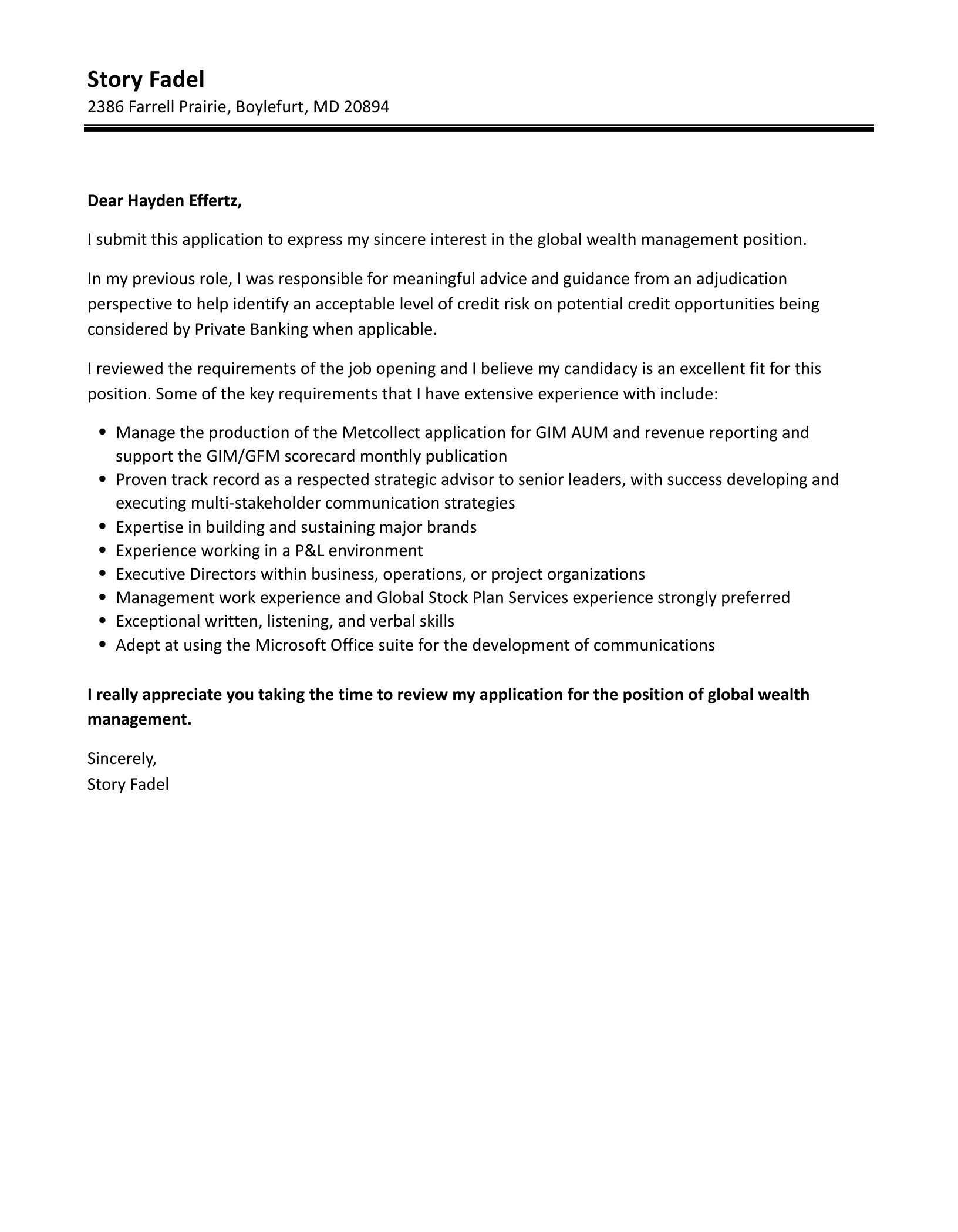
Your cover letter is the perfect place to express your genuine interest and passion for wealth management. Begin by clearly stating your interest in the specific internship position and the company. Explain what attracts you to wealth management, whether it’s the opportunity to help clients achieve their financial goals, the analytical nature of the work, or the dynamic environment of the industry. Share any personal experiences or motivations that have driven your interest in wealth management. Show them that you have done your homework and know what wealth management entails. This enthusiasm will make your application stand out and indicate that you are genuinely interested in building a career in the field. Showing true passion is vital.
Key Components of a Winning Cover Letter
A successful cover letter typically includes several key components, each serving a specific purpose. This guide will break down each component, from the initial contact information to the final closing paragraph, to help you create a comprehensive and persuasive application. Each section should be clear, concise, and tailored to the specific internship opportunity. The key is to balance professionalism with your unique personality, making sure you meet all the requirements. Focusing on these essential elements will help you create a compelling cover letter that highlights your strengths and persuades employers to consider your application.
Contact Information and the Professional Greeting
Start your cover letter with your contact information, including your name, address, phone number, and email address. Then, address the letter to the hiring manager or the specific person responsible for reviewing applications, if known. If the name is not available, use a professional greeting, such as “Dear Hiring Manager.” Avoid generic greetings like “To Whom It May Concern.” Make sure your email address is professional and appropriate. This sets the tone for the rest of your letter and demonstrates your attention to detail and professionalism. Always double-check the spelling and accuracy of the recipient’s name to show respect and professionalism.
Crafting a Compelling Opening Paragraph
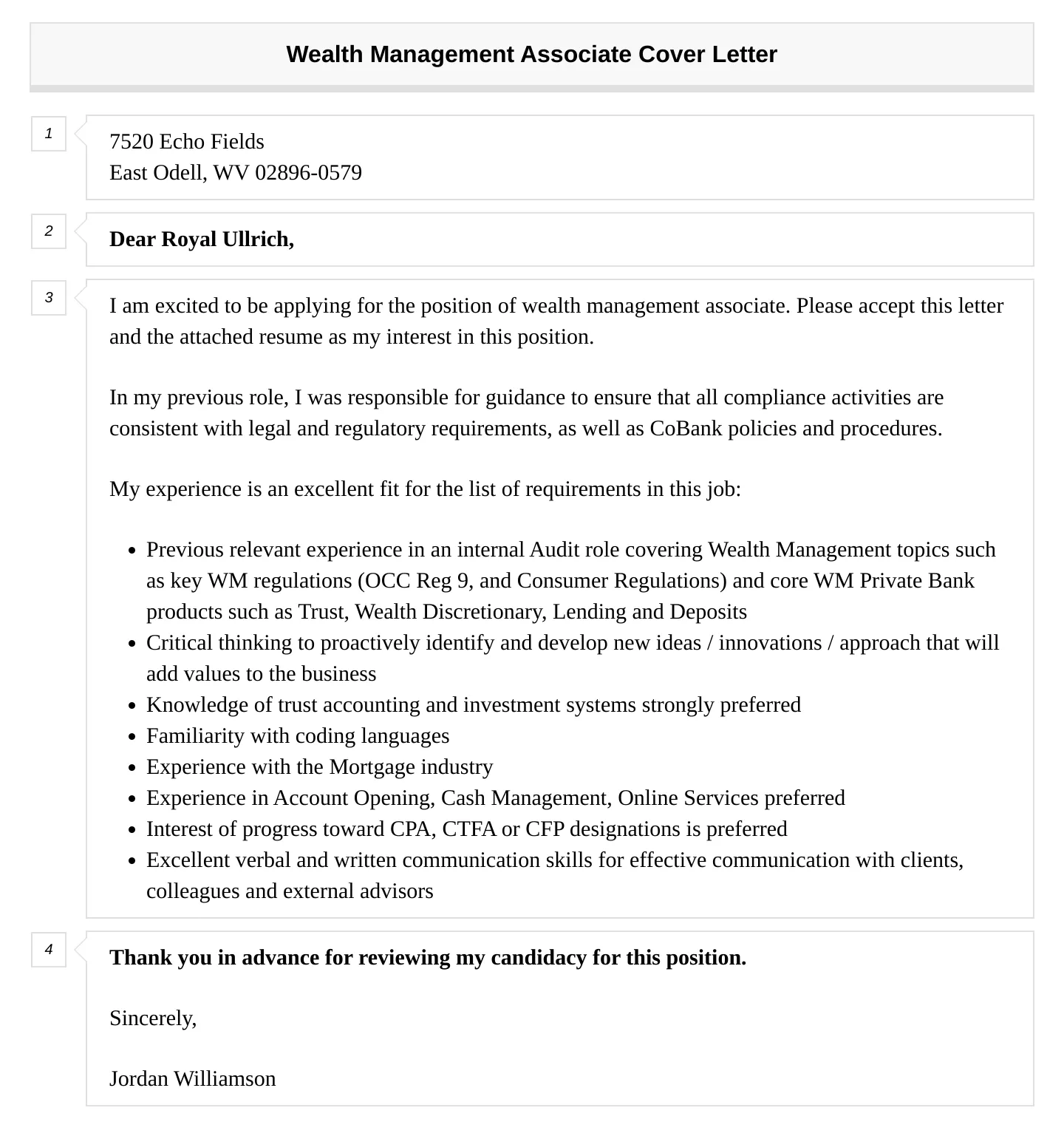
Your opening paragraph should immediately capture the reader’s attention and state your purpose. Clearly mention the position you are applying for and where you saw the job posting. Briefly highlight your key qualifications and your enthusiasm for the role. A strong opening paragraph sets the tone for the rest of your cover letter. Your goal is to grab the hiring manager’s attention from the beginning. Be concise, confident, and enthusiastic. The first paragraph is your chance to make a strong first impression. It should entice the reader to continue reading and learn more about your skills and experience.
Showcasing Your Relevant Skills and Experience
In the body of your cover letter, provide specific examples of your skills and experiences that align with the requirements of the internship. Use the job description as a guide to understand what the employer is looking for. Mention any relevant coursework, projects, internships, or extracurricular activities that have equipped you with the necessary skills. Highlight skills such as financial analysis, communication, problem-solving, and attention to detail. Use action verbs to describe your accomplishments and demonstrate how you have applied your skills in practical situations. For example, instead of saying “I worked on financial analysis”, you could write, “Utilized financial modeling techniques to analyze investment portfolios and identify key trends.
Quantifying Your Achievements
Whenever possible, quantify your achievements to demonstrate the impact of your work. Use numbers and metrics to illustrate your accomplishments. For example, if you were involved in a project that saved the company money, state the specific amount. If you improved efficiency, mention the percentage increase. Quantifying your achievements adds credibility to your claims and provides concrete evidence of your skills and abilities. This also helps the hiring manager quickly understand the value you bring to the table. When you provide measurable results, it gives employers a clearer picture of your capabilities and potential contributions.
Demonstrating Your Knowledge of Wealth Management
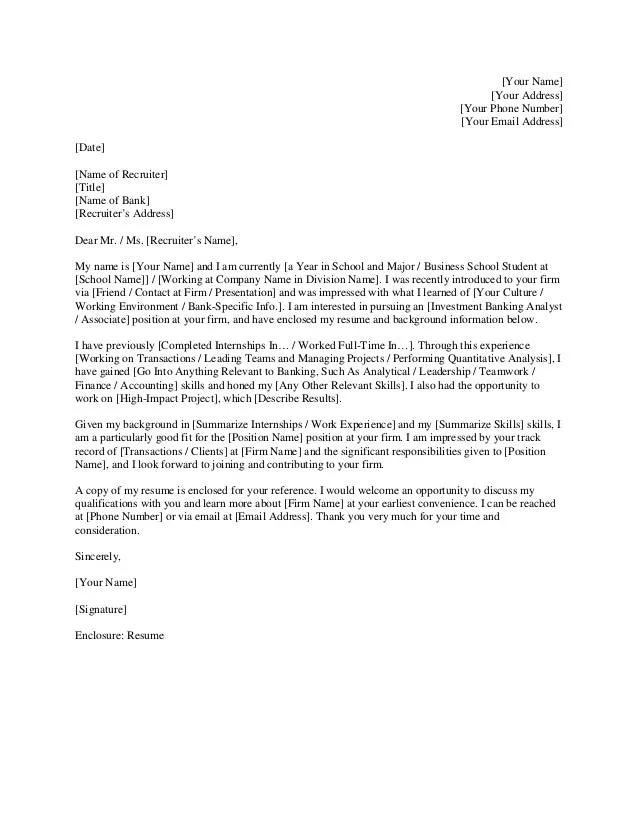
Show that you have a basic understanding of wealth management concepts. Mention any relevant courses, certifications, or self-study that you have completed. Discuss your familiarity with financial planning, investment strategies, and the financial markets. Mention any specific tools or software you know. Tailor your cover letter to the specific requirements and focus of the company. This shows that you are serious about the field and have taken the initiative to learn more about it. You can also refer to industry-specific publications or news to show your awareness of current trends and challenges in wealth management.
Tailoring Your Cover Letter to the Company
Customize your cover letter for each company you apply to. Avoid using a generic template. Research the company’s mission, values, and culture, and show how your skills and experience align with their specific needs. Demonstrate your interest in the company and explain why you are a good fit for their organization. Refer to specific projects, initiatives, or values that resonate with you. This level of personalization shows that you have taken the time to understand the company and are genuinely interested in working there. It also demonstrates your attention to detail and your ability to tailor your message to different audiences.
Researching the Company and its Values
Before you write your cover letter, conduct thorough research on the company. Visit their website, read their mission statement, and explore their social media presence. Understand their services, clients, and company culture. Identify the company’s values and find ways to incorporate them into your cover letter. Researching the company will allow you to tailor your cover letter to their specific needs and demonstrate your interest in their organization. By referencing their specific values and initiatives, you show that you are a good fit for their team. This research also shows you’re proactive and dedicated to the application process.
Mentioning Specific Projects or Initiatives
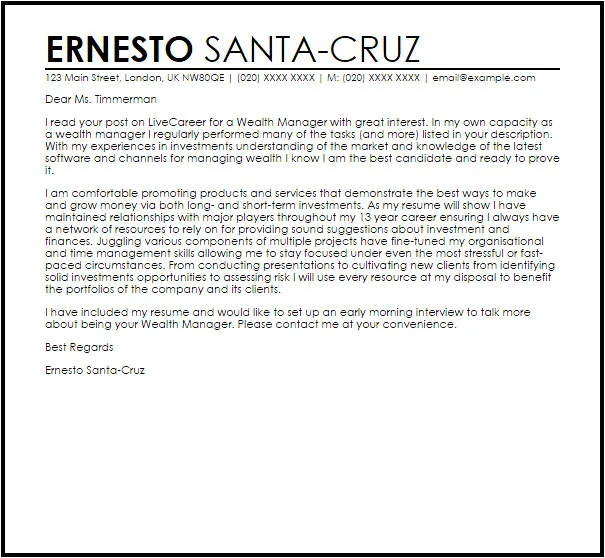
If possible, refer to any specific projects or initiatives that the company is involved in and that interest you. This shows that you’ve paid attention and are genuinely interested in their work. It also allows you to demonstrate how your skills and experience can contribute to those projects. Use keywords and phrases from the job description to show the alignment between your skills and the job requirements. This will make your cover letter more relevant and show the hiring manager that you understand the role and the company’s priorities. It demonstrates your ability to apply your knowledge in a practical setting.
Expressing Your Enthusiasm for the Internship
Express your genuine enthusiasm for the internship opportunity. State why you are excited about the prospect of working with the company and what you hope to gain from the experience. This enthusiasm is a key differentiator. A sincere expression of interest can leave a lasting impression. Show that you are eager to learn, contribute, and grow professionally. This positive attitude can go a long way in securing an interview. Be specific about why you want to work for this company. Whether it’s the work culture, the learning opportunities, or the company’s mission, highlighting these aspects will help you make a memorable impression.
The Importance of a Strong Closing
Your closing paragraph should be professional and assertive. Thank the hiring manager for their time and consideration. Reiterate your interest in the internship and express your enthusiasm for the opportunity. Include a call to action, such as stating that you are available for an interview and eager to discuss your qualifications further. Ensure that your closing leaves a positive final impression. This is your last opportunity to make an impact and prompt the reader to take the next step. Avoid clichés and instead, write a closing that reflects your personality and sincerity.
Proofreading and Editing Your Cover Letter
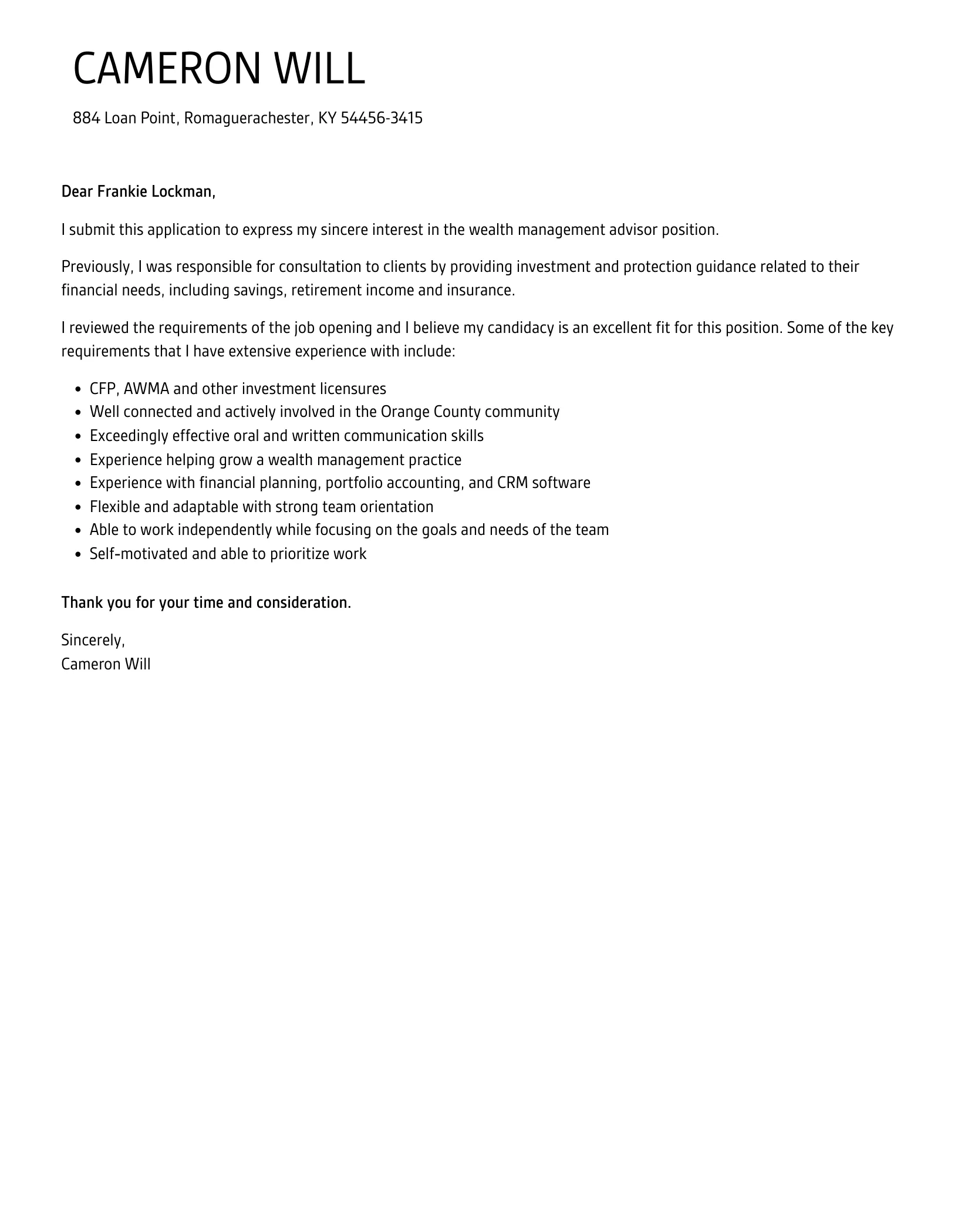
Before submitting your cover letter, proofread and edit it carefully. Check for any grammatical errors, spelling mistakes, and typos. Ensure that the letter flows logically and is easy to read. Ask a friend, career advisor, or professor to review your cover letter for feedback. Proofreading is crucial to ensure that your application looks professional and polished. Reviewing your cover letter multiple times and having a second pair of eyes will help you catch any mistakes that you may have missed. A cover letter full of errors will be a deterrent and show that you are not focused or detail-oriented.
Ensuring Grammatical Accuracy and Clarity
Accuracy is key when preparing your cover letter. Pay close attention to grammar and punctuation. Write in clear, concise sentences. Use a professional tone throughout the letter. Avoid using slang or overly casual language. Ensure that your sentences are well-structured and easy to understand. Make sure that you use the correct grammar and punctuation. A cover letter riddled with errors undermines your professionalism and credibility. Always use a grammar checker and consider reading the letter aloud to catch any awkward phrasing or unclear sentences.
Formatting Your Cover Letter for Readability
Proper formatting can significantly enhance the readability of your cover letter. Use a professional font, such as Times New Roman or Arial, with a standard font size (11 or 12 points). Use clear headings and subheadings to break up large blocks of text. Use appropriate margins and spacing to create a visually appealing layout. Ensure that your cover letter is easy on the eyes and quickly scannable. A well-formatted cover letter is more likely to be read and appreciated by the hiring manager. Make sure that the format is consistent throughout the document.
Common Mistakes to Avoid in Your Cover Letter
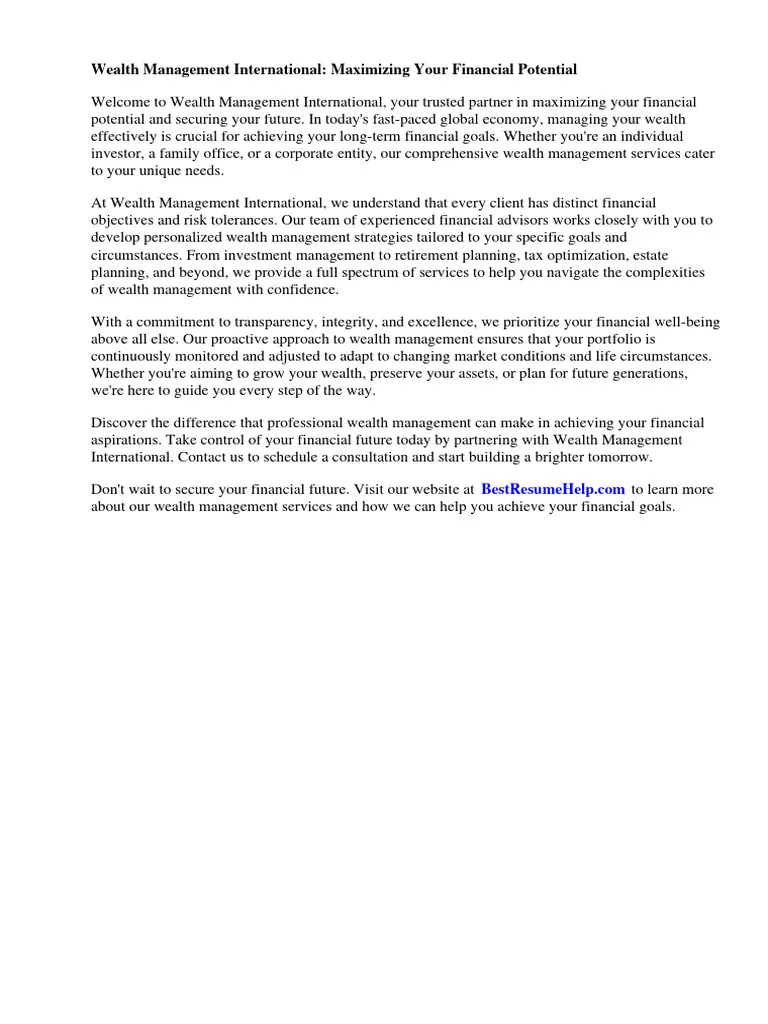
Avoid common mistakes that can undermine your application. Do not use a generic cover letter template without tailoring it to the specific company and position. Avoid making grammatical errors or typos. Do not exceed the recommended length (usually one page). Do not be overly boastful or use unprofessional language. Be sure to provide accurate information. Avoiding these pitfalls will help you present yourself in the best possible light and increase your chances of making a positive impression. Paying attention to these details can significantly improve the effectiveness of your cover letter.
